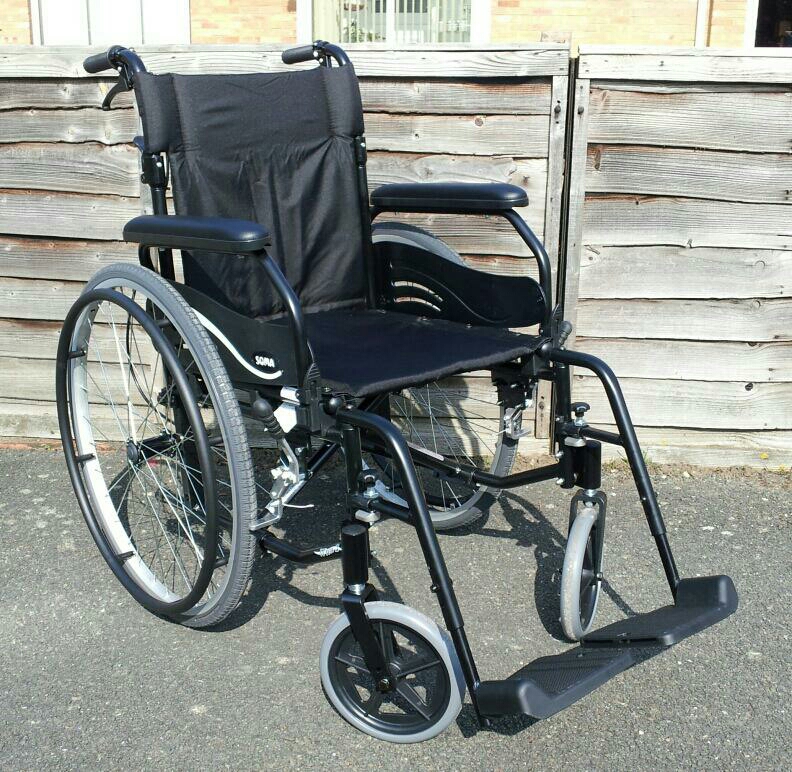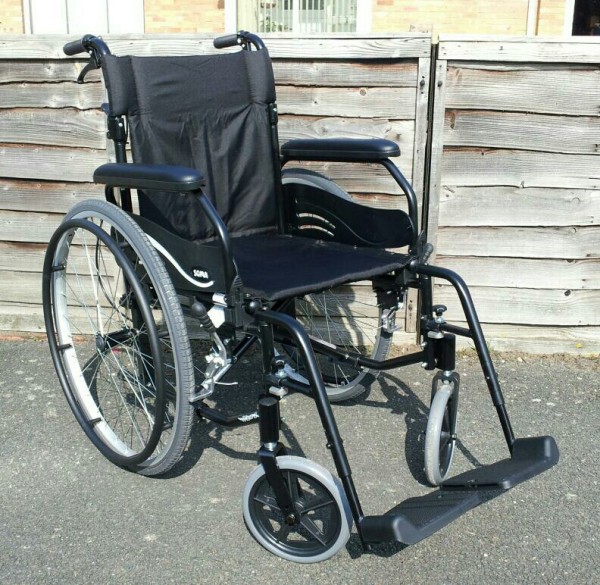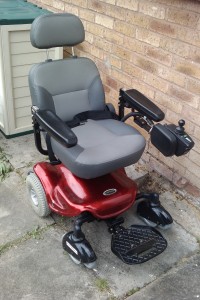
Today my sister used a wheelchair for the first time. (We share the same inherited mitochondrial condition.) Her husband has little experience of pushing a wheelchair so I tried to give him some tips, which resulted in what I have written below. Believe it or not there is actually some skill involved in pushing a wheelchair and keeping the person in it comfortable. These are just observations from my own experience of being in a wheelchair pushed by someone else, but everyone is different. If you’re pushing a wheelchair for someone new then you should ask them if they have any preferences.
- Communicate. Ask if there’s anything you need to know first. NEVER touch or move a wheelchair without permission.
- Don’t overshoot checkouts and reception desks. If you are level, your passenger has gone too far past it.
- Don’t bump your passenger’s feet into people, objects or walls. Particularly in lifts.
- Don’t follow anyone too closely. (See previous point.) Your passenger is closer to them than you are, and seeing backsides that close gets tedious.
- Watch out for oddly sloping pavements, especially near dropped kerbs. The wheelchair WILL veer sideways into traffic if you are not careful.
- Look ahead for bumps. Dropped kerbs are often not dropped very much. Be prepared to walk a long way around via the road.
- Always approach bumps straight on. If you are not lined up, stop and turn first.
- It can be easier to go backwards over bumps if the wheelchair has large wheels.
- Pay attention to the surface you travel over and take the smoother path. Cobbles can be painful or tiring for someone in a wheelchair.
- Don’t let the wheelchair run out of control. Consider taking slopes backwards so you can hold back the wheelchair. CHECK FIRST!
- If your passenger says stop, STOP immediately. (And, indeed, follow other instructions - see comments below.)
- Try going through heavy doors backwards so you can push the door with your body.
- Some wheelchairs have brakes operated by the passenger. Never assume that those brakes are on or off, always check.
- If someone speaks to you when they should speak to your passenger, tell them so.
- Be forgiving of your passenger. They have no control and that may make them grumpy. Wheelchair users: be aware that you might be shouting at your assistant more than you realise.
- If you’re pushing a wheelchair very far then you’ll probably want to get some gloves.
Thanks to @knitswift, @chmasu, @missnfranchised, @lisybabe.





